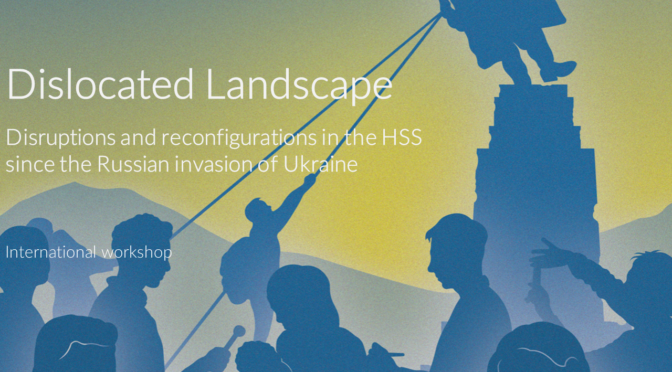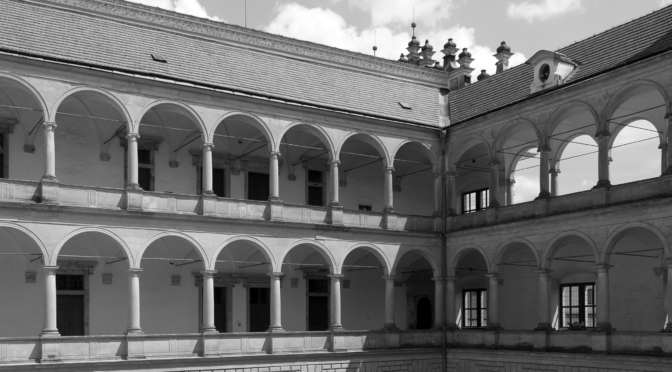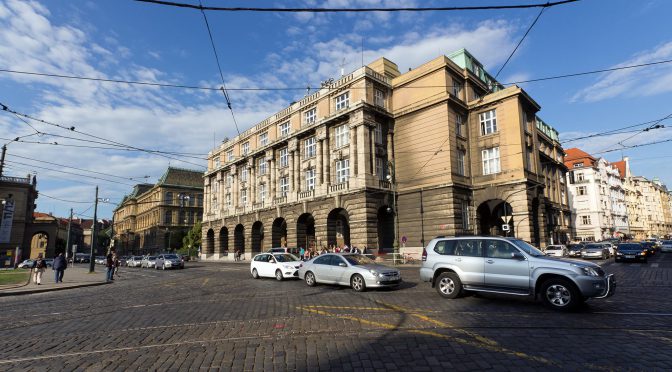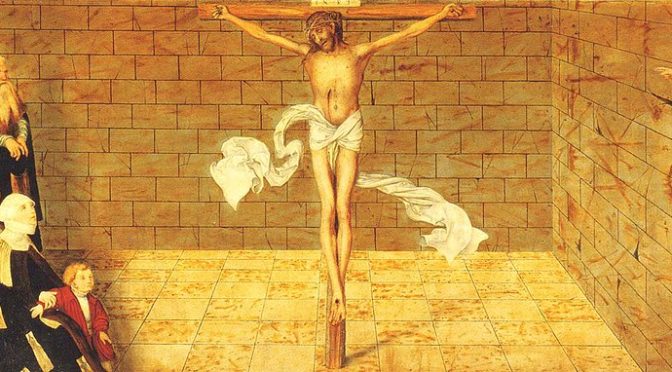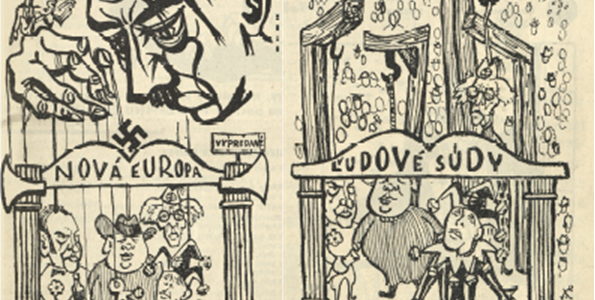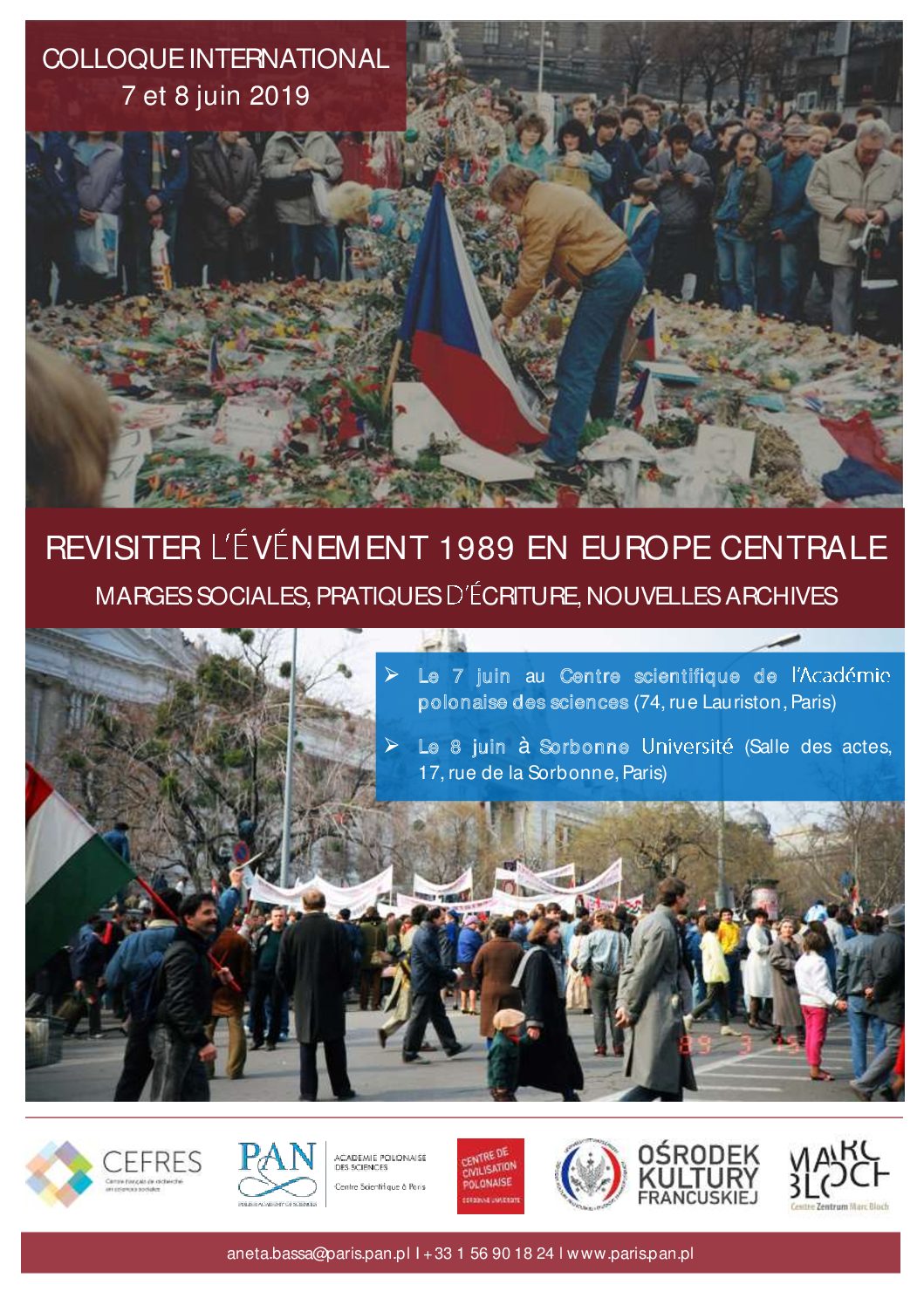Vykloubená krajina.
Narušení a rekonfigurace humanitních a společenských věd po Ruské invazi na Ukrajinu
Druhý mezinárodní workshop s nerezidenčními stipendisty CEFRESu proběhne v Praze ve dnech 22.-23. října 2024. Tento workshop je součástí programu nerezidenčních stipendií pro ukrajinské výzkumné pracovníky v oblasti humanitních a společenských věd.
Datum: 22. a 23. října 2024
Místo konání: CEFRES a online (pro získání odkazu napište na adresu cefres@cefres.cz).
Jazyk: angličtina
Vědecká komise:
- Eva Voldřichová-Beránková (Prorektorka pro mezinárodní vztahy, Univerzita Karlova, Praha)
- Luba Jurgenson (Sorbonne Université, Paříž)
- Kateřina Králová (Fakulta sociálních věd, Univerzita Karlova, Praha)
- Sophie Lambroschini (ANR/BFG LimSpaces, Marc Bloch Center, Berlín)
- Gilles Lepesant (CNRS/CEFRES)
- Viktoria Sereda (Virtuální ukrajinský institut pro pokročilá studia, Berlín)
Organizátoři:
- Mateusz Chmurski (CEFRES, Praha / Sorbonne Université, Paříž)
- Pavlo Khudish (Uzhhorod National University)
- Valeriya Korablyova (Fakulta sociálních věd, Univerzita Karlova, Praha)
Partneři:
- Univerzita Karlova, Praha
- Francouzský ústav pro výzkum ve společenských vědách (UMIFRE 13, UAR 3138 CEFRES, CNRS-MEAE),
- Výzkumné centrum kultur a společností střední, balkánské a východní Evropy (UMR 8224 Eur’ORBEM, CNRS-Sorbonne Université, Paris)
- Výzkumné centrum Ukrajina v měnící se Evropě, Fakulta sociálních věd, Univerzita Karlova, Praha (IMS FSV UK)
Teze workshopu je dostupná zde
Abstrakty účastníků workshopu zde
Úterý 22. října 2024
Úterý 22. října 2024
9:30 | Uvítací projevy
Vasyl Zvarytch, velvyslanec Ukrajiny v České republice
Stéphane Crouzat, velvyslanec Francie v České republice
10:00 | Úvodní slovo
Mateusz Chmurski (CEFRES, Praha / Sorbonne Université, Paříž)
Pavlo Khudish (Užhorodská národní univerzita)
Valeriya Korablyova (Fakulta sociálních věd Univerzity Karlovy, Praha)
10:30 | Přestávka na kávu
11:00-12:30 | Sekce 1: Spojené arabské emiráty / EU a válka, ekonomické a právní perspektivy (1)
Moderátor: Mgr: Jan Malíř (Ústav státu a práva AV ČR, TBC)
- Mykola Gnatiuk (Národní univerzita Kyjev-Mohyla akademie): Reconfiguring Public Procurement Amidst Conflict. The Impact of Martial Law on Governance and Transparency in Ukraine
Victoria Gerbut (Užhorodská národní univerzita): Same-Sex Families: The European Court of Human Rights Case Law vs. Current Ukrainian Realities
Tetyana Karabin (Užhorodská národní univerzita): Dimensions of Europeanization of Public Law in Ukraine
12 :30 – 13:30 | Přestávka na oběd
13:30 – 15:30 | Sekce 2: Postkoloniální, postimperialistické výzvy a památky (1)
Moderátorka: Kateřina Králová (Fakulta sociálních věd Univerzity Karlovy, Praha)
- Anna Yanenko(Národní univerzita Tarase Ševčenka v Kyjevě, Ústav archeologie Národní akademie věd Ukrajiny): Totalitarianism, Wars, and Sacral Space Transformations: Ukrainian Visual Discourse from the 1930s to nowadays
- Nazar Kozak (Oddělení dějin umění Ústavu etnologie Národní akademie věd, Ukrajina): Postcolonial Perspective on the Restauration and Reconstruction of Medieval Churches in Ukraine
- Roman Dzyk (Yuriy Fedkovych Chernivtsi National University): Postcolonial Studies in Ukrainian Literary Criticism
- Diana Hryniuk (Národní univerzita Tarase Ševčenka v Kyjevě): Regional Research on Cultural Heritage and Museums in the Context of the Ongoing War
15:30-16:00 | Přestávka na kávu
16:00 – 18:00 | Sekce 3: Postkoloniální a postimperialistické výzvy a památky (2)
Moderátorka: Luba Jurgenson (Sorbonne Université, Paříž)
- Sergii Shevtsov (Mečnikovova národní univerzita, Oděsa): Identity, Violence and Eco-Space
- Viktoriia Myronenko (Kyjevské národní divadlo Karpenko-Kary, Filmová a televizní univerzita): From Aryan Ideal to Russian Exceptionalism: The Evolution of National Superiority Imagery in Visual Propaganda
- Vasyl Derevinsky (Kyjevská národní univerzita stavebnictví a architektury): Parallels of the two Eras of the Struggle for the Freedom of Ukraine (1988–1991 and 2014–2024)
- Marakhovska Natalia (Mariupolská státní univerzita, Ukrajina): EDI through the Lens of Art: Transforming Intercultural Education for War-Affected Ukrainians
19:00 | Společná večeře
Středa 23. října 2024
10:00- 12:00 | Sekce 4: Umění, literatura a politika, procesy, praxe a dědictví (1)
Moderátorka: Sylvie Archaimbault (CNRS / Sorbonne Université, Paříž)
- Natalia Matveieva (Volodymyr Hnatiuk National Pedagogical University, Ternopil): Changes in Language and National Consciousness of Ukrainians in the Period of Russia’s Full-Scale War in Ukraine
- Ivanna Tsar (Národní akademie věd Ukrajiny): Language Ideologies of Young Ukrainians and Crimeans Tatars in Wartime Ukraine
- Oleksii Ankhym (Státní univerzita Ivana Franka v Žytomyru): Transnational Literature: Research Methodology
- Maryna Litvinova (Vzdělávací a vědecký institut Národní univerzity admirála Makarova, Mykolajiv): The Problem of Socio-Psychological Consequences of the Digital Revolution: What is the Norm and What is an Abnormality
12:00-13:00 | Přestávka na oběd
13:00 – 14:30 | Sekce 5: Umění, literatura a politika, procesy, praxe a dědictví (2)
Moderátorka: Valeriya Korablyova (Fakulta sociálních věd Univerzity Karlovy, Praha)
- Pavlo Khudish (Užhorodská národní univerzita): Jewish Survivors in Transcarpathia: Interactions with Neighbours in Rural and Urban Space, 1944-46
- Bohdan Shumylovych (Lvovské centrum pro urbánní dějiny): Quiet Trauma and Visual Violence, Imagining Unheimlich
- Vadym Adadurov (Ukrajinská katolická univerzita ve Lvově) : Quatre identités nationales d’un intellectualiste ukrainien, les choix socio-culturels et perversions mentales d’Élie Borschak (1894-1959)
14:30-15:00 | Přestávka na kávu
15:00-17:00 | Sekce 6: UA / EU a válka, ekonomické a právní perspektivy (2)
Moderátor: Gilles Lepesant (Francouzské národní výzkumné centrum / CEFRES, Praha)
- Ilona Dumanska (Khmelnytskyi National University): In the Face of War Resilience’s Phenomenon of IT Entrepreneurship in Ukraine.
- Nataliia Dziubanovska (Západoukrajinská národní univerzita, Ternopil): An Integrative Approach to Assessing the Impact of Migration from the Ukraine War on Visegrad Group Trade.
- Volodymyr Momot (Univerzita Alfreda Nobela, Dnipro): Circular Economics Emerging Patterns during the Wartime in Ukraine and in Future Reconstruction.
- Olesia Totska (Lesya Ukrainka Volyňská národní univerzita, Luck): Research Methods of Foreign Economic Cooperation of Ukraine and EU Countries in War Conditions.
17:00-17:30 | Závěrečné slovo: Eva Voldřichová-Beránková (Prorektorka pro mezinárodní vztahy, Univerzita Karlova, Praha)
Seminář je součástí programu nerezidenčních stipendií Francouzského výzkumného centra humanitních a společenských věd (CEFRES) pro ukrajinské badatele v oblasti humanitních a společenských věd, který vznikl v úzké spolupráci s francouzským Ministerstvem Evropy a zahraničních věcí, Francouzským velvyslanectvím a Institutem na Ukrajině, jakož i Výzkumným centrem Ukrajina v měnící se Evropě při Fakultě sociálních věd UK, Katedrou východoevropských studií Filozofické fakulty UK a Ústavem dějin umění a Ústavem pro soudobé dějiny AV ČR (viz: https://cefres.cz/en/20938).
Místo konání
Francouzský ústav pro výzkum ve společenských vědách
Centre français de recherche en sciences sociales
French Research Center in Humanities and Social Sciences
UMIFRE 13, MEAE-CNRS – UAR 3138
Na Florenci 3, CZ-110 00 Prague 1
Tél. : (+420) 224 921 400 | www.cefres.cz

